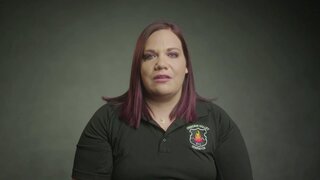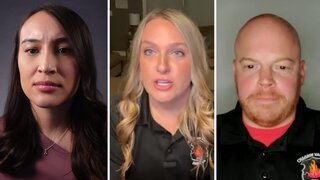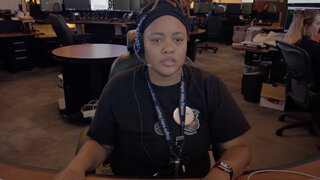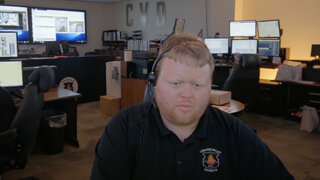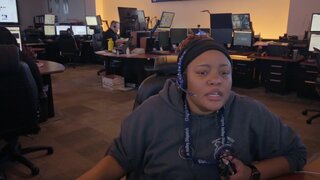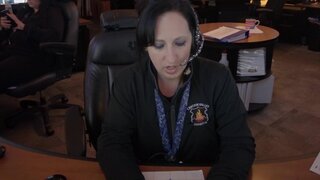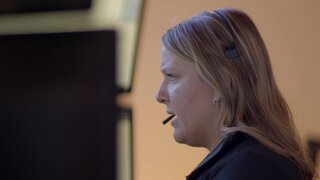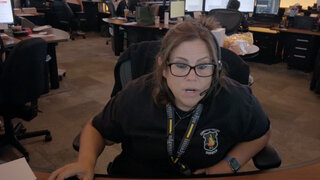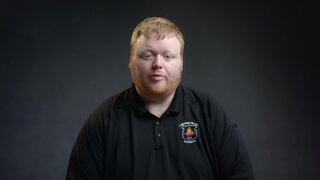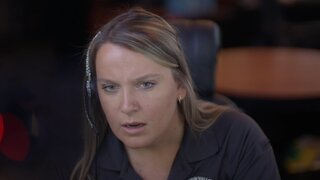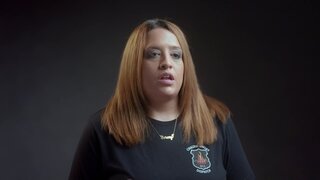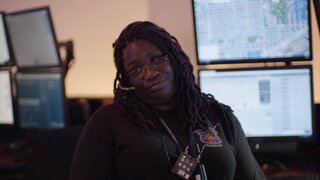'911 Crisis Center' Dispatchers Help A Caller Avoid A Fatal Drug Overdose
Each 911 call brings a new challenge for Chagrin Valley Dispatch staff, seen on Oxygen series "911 Crisis Center."
A grease fire breaks out in a residential kitchen. A stubbed toe hurls a 27-year-old man into a hyperventilating panic. A family argument over a hoverboard threatens to turn violent. A fight at a supermarket escalates as one person draws a knife.
That’s a sample of the wide variety of emergency calls to Chagrin Valley Dispatch, a communications center covering the greater Cleveland area. Dispatchers there are featured in Oxygen’s new series, “911 Crisis Center,” airing Saturdays at 9/8c.
Abby Encarnacion, a 911 dispatcher with a decade of experience, received a call from a frantic mother who reported that her son had suffered a drug overdose.
“I just came home and found him,” the caller said. “I don’t know how long he’s been like this.”
Medical help was directed to the caller’s address. Encarnacion asked, “What does he usually take?” “Heroin,” the anguished mom said. She added that her son wasn’t breathing and that she knew how to do CPR.
Time was of the essence to begin CPR, which mimics how the heart pumps, according to the CDC. It must be done on a hard surface so that the pressure of chest compressions can effectively circulate oxygenated blood through the body.
Encarnacion had the caller roll her son to the floor and position him onto his back. She counted along with the caller as she placed one palm on her son’s chest and the other hand on top of the first and began pressing.
“You’re doing good. We’re almost there,” Encarnacion assured the worried mom. Help arrived. Once Encarnacion confirmed that they were with the mom, she ended the call.
Paramedics were able to resuscitate the man and prevent a fatal overdose, according to “911 Crisis Center.”
Meanwhile, in another call, a woman desperately pleaded for help. She told the dispatcher that her child’s father had broken her leg. Police and paramedics were dispatched to the address.
Asked by the dispatcher if the alleged assailant had a weapon, the caller said, “No. He said he’s going to kill me, though.”
As this call continued, another dispatcher picked up a call from a man claiming that “somebody is jumping through my window.” Using the Center’s mapping system, the call was determined to be coming from the same address. The male caller gave a conflicting version of the events surrounding the disturbance.
Throughout the calls, the man and woman argued. Awaiting the arrival of police, dispatchers focused on separating the two callers.
“Getting parties separated in a domestic violence type of situation is key because at least if you get them separated,” said 911 dispatch supervisor Marra Wargo, “they'll be more focused on the conversation and less focused on each other.”
After help arrived, the female caller was transported to the hospital to assess her injuries. Officers took a report. “Abusive situations are never an easy call,” said Wargo.
To learn more about these calls and others, watch “911 Crisis Center,” airing Saturdays at 9/8c on Oxygen, or stream episodes here.

